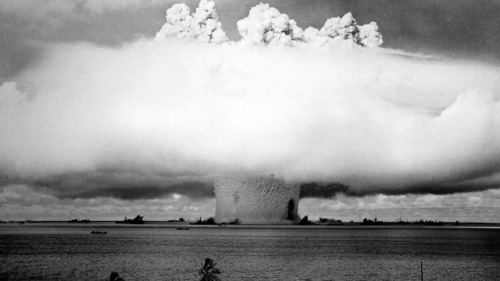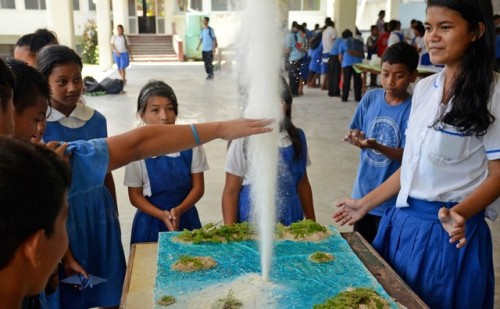kakaimeitahi:A ground zero forgottenThe Marshall Islands, once a U.S. nuclear test site, face oblivi
kakaimeitahi:A ground zero forgottenThe Marshall Islands, once a U.S. nuclear test site, face oblivion againIn 2001, an independent nuclear-claims tribunal awarded the RMI $2.3 billion in health and property damages, but there was no mechanism to force the United States to pay it. Washington does not consider itself liable beyond the original settlement and points to the additional tens of millions of dollars it grants every year to environmental, food and health-care programs.The problem? These sector grants are decreasing yearly until 2023, when they expire. Plenty of treasure has already been lost in the clumsy merger between a Western economy of cold hard cash and a feudalistic society in which traditional chiefs and landowners hold sway.What Americans consider welfare, the Marshallese consider normal historical function: Fish, coconuts and other perishables were given to the chief to distribute promptly and fairly, to avoid waste and to keep the peace. Then America, with its deep pockets, became the de facto high chief.Now, a new trust fund is being capitalized by the United States at a rate of $12 million to $16 million a year to provide a life jacket for the RMI economy after 2023. But this fund would be just as vulnerable to hasty distribution as existing trusts, which have been siphoned at times by the Marshallese.“I think the U.S. acquitted itself reasonably,” says a U.S. policy adviser on the Marshall Islands who requested anonymity because he is not authorized to speak for the federal government. “We did a horrible thing, but we provided compensation, and then a lot more.”The Marshallese culture is rooted in a history of resource sharing, ecological balance, of an intimate knowledge of how the winds blow, how the waves break, how the stars slip across the sky. Over the past 70 years, though, victimhood, corruption and dependency have produced a different kind of fallout.“We have basically destroyed a culture,” says Glenn Alcalay, an anthropology professor at New Jersey’s Montclair State University who took part in Greenpeace’s second evacuation of Rongelap in 1985. “We’ve stolen their future. When you take the future from a people, you’ve destroyed them.” -- source link
Tumblr Blog : kakaimeitahi.tumblr.com


